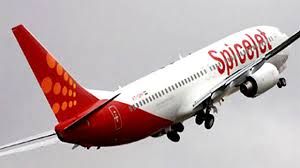The way the traveller has benefited ever since commercial air travel was deregulated round the world with the advent of ‘open skies’, makes the gains accruing from competition self-evident.
 The rescue of budget carrier SpiceJet from impending demise by its original promoter, Ajay Singh, will certainly be good for airline travellers.
The rescue of budget carrier SpiceJet from impending demise by its original promoter, Ajay Singh, will certainly be good for airline travellers.
A second exit from the sector, after that of Kingfisher Airlines, would have meant choice dwindling to virtually one, IndiGo, with only half choices offered by GoAir (small footprint), Jet Airways and Air India (both full-service carriers).
The way the traveller has benefited ever since commercial air travel was deregulated round the world with the advent of ‘open skies’, makes the gains accruing from competition self-evident.
Importantly, competition does not mean regular offerings of cutthroat discounted fares which are non-viable.
Competition promotes innovation in the business model, creating sustainable value.
When Mr Singh first launched SpiceJet he promised to position it as the McDonald’s of aviation, which role has really been adopted by IndiGo.
The key issue is the viability of the business model of budget carriers.
There has to be more to it than not offering free meals and packing all into a single cramped cabin with terrible seat pitch (effective legroom). IndiGo was the first in India to lease out and lease back its own planes, gaining financially in the process.
It is also by now almost mandatory to fly only one aircraft make and avoid new routes whose stations are a financial drain, concentrating instead on extracting the best out of dense sectors.
Critically, SpiceJet challenged both these by deploying a second make, Bombardier, and initiating new routes where station staff had little to do round the day.
To the extent that these have clearly been revealed as errors, they will have to be corrected.
The speed and efficiency with which they are done will be crucial.
Hence it is expected that the new management will fly only one type of aircraft, eliminate routes with low yield and return to running a decent-sized fleet as quickly as possible.
The whole process is likely to take close to a year after which the carrier will hopefully become stable and shadow its market share of 19 per cent before financial trouble truncated its operations.
Every time a budget carrier goes belly up or returns from the brink, a hoary old question resurfaces: are these animals viable or is the world best served by the old system of regulated commercial air travel?
In India, two current realities help answer the question.
One, along with airlines everywhere, Indian carriers are getting a real breather from low fuel prices.
Two, with comfortable train journeys that stick to the schedule remaining far off, a budget airline has to just push itself at the margin to remain in steady state of viability. What is more, with urbanisation taking such rapid strides, a growing number of new destinations will be waiting to be connected.
Hence the opportunity for budget carriers will be enormous.
Only, they will have to exploit it while keeping costs in mind and not the way SpiceJet tried to do.











